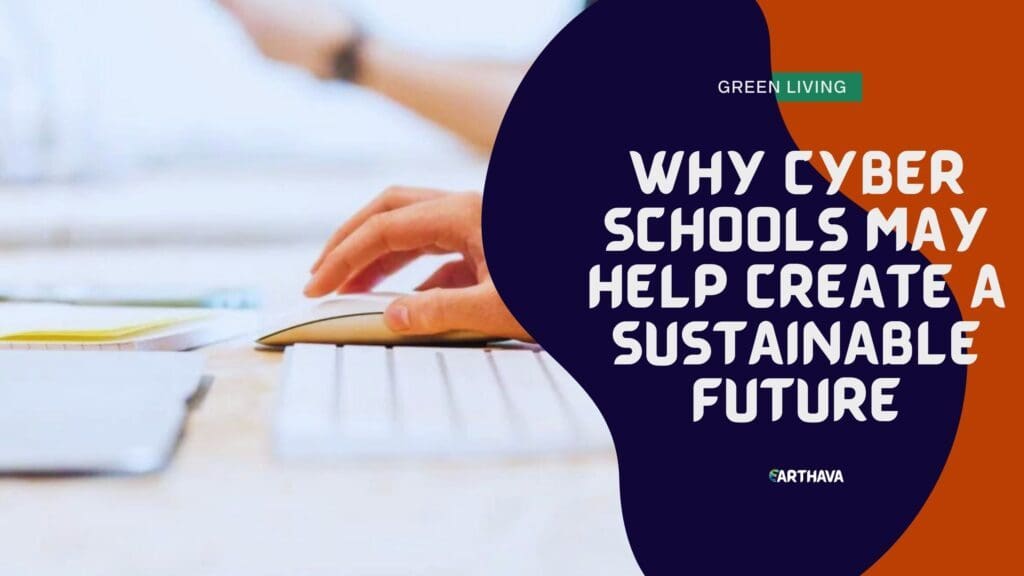Educational campuses and schoolhouses have been an important part of society for hundreds of years. In these buildings, students and teachers gather to discuss different topics and learn and expand their knowledge of the world. However, the brick-and-mortar approach to education may soon be a thing of the past. Today, many are opting out of the traditional classroom experience and enrolling in online courses and universities.

Virtual public and private schools and colleges are becoming the new norm around the globe, giving students a better, more flexible opportunity to receive an education. However, humans aren’t the only ones to benefit from these cyber schools. The planet and its fragile ecosystems and surrounding atmosphere are also reaping several rewards from this new education system. From reducing carbon emissions to conserving resources, cyber schools may help create a more sustainable future.
Cuts Down on Commutes
A single passenger vehicle typically emits 4.6 metric tons of carbon dioxide each year, contaminating the air and contributing to global warming. For students who have long commutes to and from school, this number can be even higher. Along with carbon dioxide, tailpipes also produce methane and nitrous oxide, while leaky air conditioners emit hydrofluorocarbons — all of which contribute to global warming even more than CO2.
Online courses cut down or eliminate a student’s daily commute, thus reducing air pollution and its effect on the planet. By watching lectures, participating in discussions, taking exams, and even video chatting with professors from home, students can reduce tons of CO2 and other toxic emissions every year. Many cyber schools also offer live lessons so students can ask questions and receive feedback in real time.
Cyber schools also do not need buses or on-campus transportation systems, further reducing carbon emissions. While buses are a better alternative to individual cars, not using them at all is even better.
Reduces Energy Consumption
Driving cars and buses to and around campus aren’t the only things that negatively affect the planet. Campus facilities require tons of energy to light, heat, and cool classrooms, labs, dormitories, offices, and other buildings. In fact, for each student enrolled in college in 2010, universities spent an average of $745 on electricity. In an attempt to reduce this power consumption, some universities have switched to LED bulbs and energy-efficient appliances. However, there’s only so much they can do without closing campuses altogether.
Cyber programs, therefore, have the potential to greatly reduce energy consumption. By offering more online courses, degree programs, and universities overall, students and administrators alike can create a more sustainable education system. Of course, students and professors will still consume energy at home, but the amount is minuscule compared to what’s required to power a large, external facility.
Requires Fewer Resources
Naturally, fewer physical classes also entail fewer physical resources. No more 20-page syllabi, printed thesis papers or hardback textbooks. In cyber schools, everything is assigned and completed online. This greatly reduces the amount of paper used, saving trees and improving the environment.
Less paper also means less pollution. Deforestation emits 44 million tons of CO2 each year. Paper mills release carbon dioxide, carbon monoxide, and nitrogen oxides, contributing to smog and acid rain and disrupting ecosystems and the Earth’s global climate. By purchasing e-books, students can minimize the use of printed copies, which take three times more raw materials and use seven times more water to produce.
In addition to conserving paper resources, cyber education also reduces the need for other school supplies like pens, pencils, calculators, binders, folders, and other items. Of course, some may argue that the computers necessary for online courses harm the environment. However, most students enrolled in a physical university would still use a computer or laptop anyway. Online universities would limit the use of additional technology like smart boards, projectors, printers, copiers, and computer labs.
Saves Land
Cyber schools not only save trees, but they also provide more land on which they might grow. Traditionally, higher enrollment rates have meant the need for expansion and clearing more land to build parking structures, roads and buildings. However, growth in online education requires little to no physical infrastructure. In fact, if enough students switch to online courses and degrees, some schools could even be leveled and replaced with green landscapes.
Furthermore, online schools typically do not need entertainment or sports facilities like baseball diamonds, football fields, gym buildings or student centers. So online schools or physical campuses that offer mostly online courses won’t be adding these structures or facilities to their ground, conserving even more land.
The Future of Sustainability
Online education may very well be a credible and practical solution to global warming. With fewer buildings producing less carbon, using fewer resources and cutting down on energy consumption, online universities and schools are proving to be a more sustainable alternative to traditional ones. The more schools that transition to this model, the more likely existing universities are to work toward reducing their carbon footprint.





